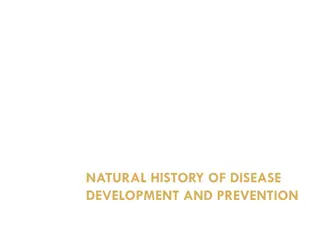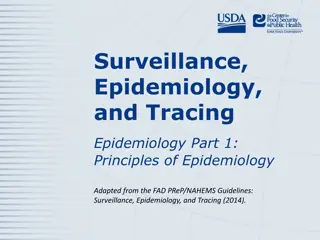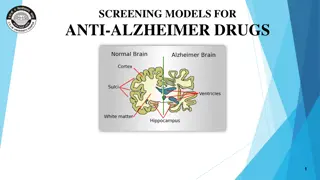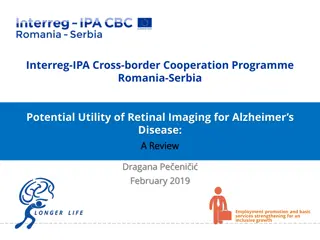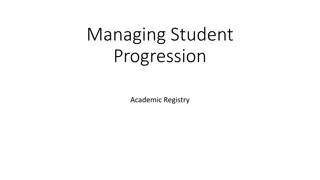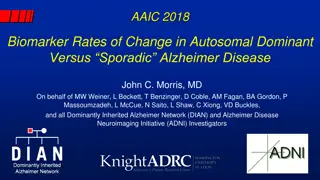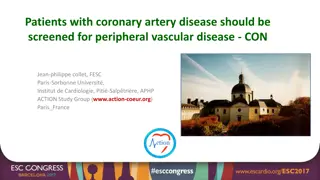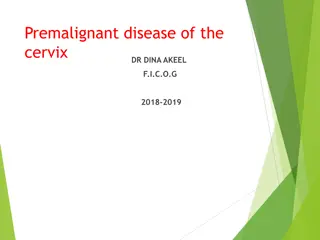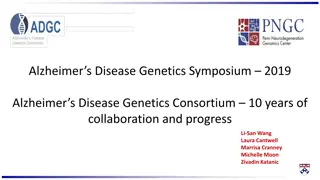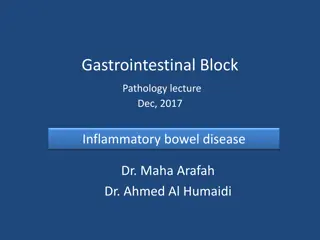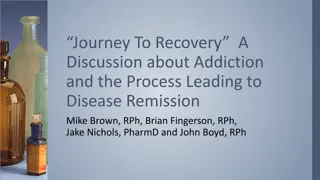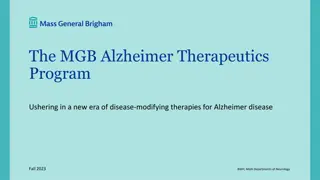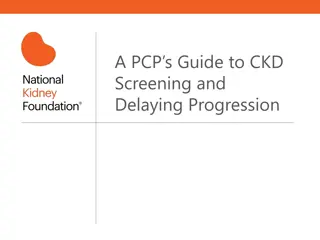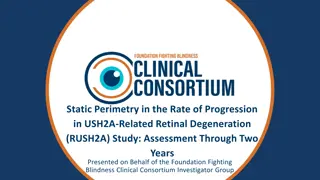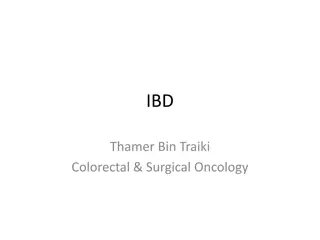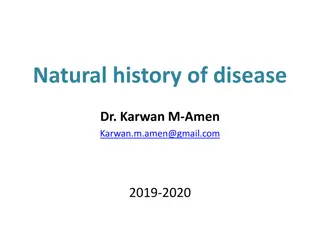Are we making progress?
The progression of learners in OpenStudio across a qualification through interactions and activities. The project aims to understand how engagement, communication, collaboration, knowledge, and learning skills evolve. The agenda includes discussions on traditional studio progression, factors influen
0 views • 24 slides
Enhancing Curriculum Design for Progression in Learning
This conversation aims to explore effective curriculum design approaches that promote learner progression and success while addressing barriers. Insights shared will influence future projects and initiatives, driving meaningful development towards educational objectives. Key considerations include s
1 views • 11 slides
Epistemic Progression in Learning: A Humanities Perspective
Exploring the concept of epistemic progression and its importance in education, this content delves into Basil Bernstein's theories on knowledge structure, trends in history education, and the role of procedural knowledge in fostering progression in disciplines like History.
1 views • 10 slides
Innovations in Infectious Disease Control: Insights from Experts
Explore the latest advancements in infectious disease control through the lens of renowned epidemiologists and researchers. Delve into the impact of the COVID-19 pandemic, the historical prevalence of infectious diseases, and early infection prevention practices. Uncover the evolution of infectious
0 views • 22 slides
The Natural History of Disease Development and Prevention
The natural history of disease development outlines the progression of a disease in an individual without intervention, from exposure to outcome. Learning objectives include defining prevention terms, understanding disease severity, prevention levels, and intervention measures. Studying disease prog
4 views • 16 slides
Principles of Epidemiology: Understanding Disease Occurrence and Surveillance
Epidemiology is the study of disease patterns, factors influencing disease occurrence, and the core functions of surveillance, field investigation, and analytic studies. It involves understanding disease characteristics, natural history, and evaluating the effectiveness of activities to mitigate dis
1 views • 25 slides
Insights into Tyzzer's Disease: An Overview of a Bacterial Infection in Laboratory Animals
Tyzzer's disease is an acute bacterial infection affecting rodents and rabbits, caused by Clostridium piliforme. Discovered in 1917 by Ernest Tyzzer, the disease is characterized by necrotic lesions in the caecal mucosa, liver, and heart. Initially known as Bacillus piliformis, it was later renamed
2 views • 21 slides
Screening Models for Anti-Alzheimer Drugs
Alzheimer's disease is a prevalent neurodegenerative brain disorder characterized by memory loss and other cognitive impairments. This article discusses the etiology, risk factors, and pathophysiology of Alzheimer's disease, along with in-vitro screening models used to test potential drugs, focusing
1 views • 24 slides
Multiple Sclerosis: Symptoms, Progression, and Treatment Options
Explore the cellular processes, symptoms, disease progression, and treatment options associated with Multiple Sclerosis (MS). Discover how MS, an autoimmune disease, affects the nervous system leading to a range of symptoms. Learn about the clinical progression of MS and how the immune system causes
0 views • 12 slides
Disease Control and Prevention in Epidemiology
This article discusses disease control processes in epidemiology, including reducing disease incidence, duration, and transmission. It covers public policy interventions, elimination, eradication, and extinction of infectious agents. It also highlights preventable causes of disease and different lev
2 views • 10 slides
Retinal Imaging for Alzheimer's Disease: A Comprehensive Review
The increasing prevalence of Alzheimer's disease (AD) necessitates sensitive screening technologies for early detection. Retinal imaging emerges as a promising tool due to its non-invasive nature, cost-effectiveness, and potential as a window to the brain. This review explores the utility of retinal
4 views • 10 slides
Managing Student Progression in Academic Registry
This content provides detailed information on managing student progression in an academic registry, covering topics such as academic framework, boards of examiners, mark finalization, module verification, referral requirements, personal tutorial assessments, student progression criteria, assessment
0 views • 15 slides
Biomarker Rates of Change in Autosomal Dominant vs. Sporadic Alzheimer Disease
Autosomal Dominant Alzheimer Disease (ADAD) and Sporadic Late Onset Alzheimer Disease (LOAD) show distinct clinical presentations, neuropathological features, and rates of progression. The DIAN-ADNI Comparison Study aims to investigate if ADAD and LOAD share the same pathophysiology and how they res
0 views • 16 slides
Principles of Training: Overload, Specificity, and Progression
Principles of training encompass overload, specificity, and progression. Overload requires doing more than usual, specificity involves tailored activities, and progression ensures gradual advancement. These principles are vital for improving fitness levels safely and effectively, emphasizing the nee
8 views • 17 slides
Screening for Peripheral Vascular Disease in Patients with Coronary Artery Disease
Patients with coronary artery disease should be screened for peripheral vascular disease as it is a frequent integrator of global cardiovascular risk. The association of atherosclerosis in various arterial diseases highlights the importance of identifying multisite artery disease. The prevalence and
0 views • 23 slides
Human Disease Symptom Network: Understanding Disease Relationships Through Symptoms and Genes
The Human Disease Symptom Network (HSDN) is constructed using a large-scale medical bibliographic records database to form a network of human diseases based on symptom similarities. By integrating disease-gene associations and protein-protein interaction data, correlations between symptom similarity
1 views • 37 slides
Premalignant Disease of the Cervix
Premalignant disease of the cervix is a significant health concern, particularly in developing countries. Carcinoma of the cervix ranks as the second most common cancer among women globally, with preventive measures vital for early detection and treatment. This article discusses the pathophysiology
0 views • 73 slides
Bacterial Diseases of Fish: Columnaris Disease Overview
Columnaris disease, also known as Saddleback disease, is a common bacterial infection in fish that is often brought about by poor handling and high stress levels. This disease manifests as tail and fin rot, leading to rapid fish mortality. The causative organism, Cytophaga (formerly Flexibacter), is
0 views • 21 slides
Academic Progression Guidelines for Undergraduate Students
Ensure academic progression by achieving a weighted aggregate of 40%+ at each level of study. Requirements differ for Single Honours and Combined Honours students, with conditions related to non-submission, misconduct, grades, and PSRB requirements. Consider options for changing programs if needed.
0 views • 6 slides
Decoding Genetics: Insights from Alzheimer's Disease Symposium to Type 2 Diabetes Study
Explore the latest findings from the Alzheimer's Disease Genetics Symposium 2019 on disease mechanisms, drug targets, and genetic pathways. Dive into the progress made by the Alzheimer's Disease Genetics Consortium over the past decade. Transition to a Genome-Wide Association Study uncovering suscep
0 views • 42 slides
Metastatic Breast Cancer Treatment and Progression Overview
Mrs. GV, a 78-year-old woman with endocrine-resistant hormone-positive metastatic breast cancer, presented with dyspnea. Her medical history includes chronic fatigue syndrome, hypothyroidism, and hypertension. Disease progression led to dermal and intraocular metastasis, managed with treatments like
0 views • 16 slides
English Language Learning Progression Assessment and Standards Overview
Explore the English Language Arts (ELA) learning progression, assessment targets, and selected themes. Understand how to read ELA standards, focusing on vocabulary acquisition and interpretation of words and phrases. Dive into grade-specific standards and themes such as reading comprehension and wor
0 views • 11 slides
Liver Disease Burden in Tower Hamlets
Dr. Somen Banerjee, Director of Public Health in London Borough Tower Hamlets, highlights the concerning liver disease mortality rates in the area, with high incidence of cirrhosis, cancer, and hepatitis B and C. The data reveals a significant burden of liver diseases such as Non-Alcoholic Fatty Liv
0 views • 18 slides
Inflammatory Bowel Disease: Crohn's Disease and Ulcerative Colitis
Inflammatory Bowel Disease (IBD) encompasses Crohn's disease (CD) and ulcerative colitis (UC), chronic conditions with immunologic basis. This article delves into the epidemiology, pathophysiology, and differences between CD and UC, highlighting clinical features, pathology, and complications like a
0 views • 42 slides
Disease Screening and Prevention in Medicine
Explore the concepts of disease screening and prevention in preventive medicine. Learn about the importance of recognizing preclinical cases, the iceberg phenomenon of disease, and the role of medical intervention in arresting disease progression. Discover when to apply screening, the types of scree
0 views • 36 slides
Addiction and the Journey to Recovery
This discussion delves into addiction as a progressive disease, the process of recovery, characteristics of addicted healthcare professionals, and the progression of substance use disorders. Speakers provide insights on recovery definitions, short-term vs. long-term recovery attributes, and successf
0 views • 23 slides
Advancements in Alzheimer Disease Therapeutics Program
The MGB Alzheimer Therapeutics Program is a collaborative effort leading to groundbreaking disease-modifying therapies for Alzheimer's disease. The development of Lecanemab (Leqembi), a monoclonal antibody targeting amyloid plaques, offers a new option to slow disease progression. The program's focu
0 views • 21 slides
Bone Destruction in Periodontal Disease
The progression of periodontal disease can lead to bone destruction in the alveolar bone, which is crucial in supporting teeth. The inflammatory process causes permanent damage to the periodontium tissues, resulting in connective tissue loss and bone resorption. Different patterns of bone loss, such
0 views • 14 slides
Ultrastructural Alterations of Renal Tissue in a Male Patient with Fabry's Disease
Fabry's disease is a rare X-linked lipid storage disorder characterized by deficient lysosomal alpha-galactosidase A activity. This condition primarily affects males, leading to chronic kidney disease and progression to end-stage renal disease. Kidney involvement is a critical aspect, and high doses
0 views • 24 slides
Oklahoma Transfer Student Progression Analysis
Explore the transfer student progression data in Oklahoma presented by Stephanie Baird, Ph.D., analyzing the statewide transfer trends, progression outcomes, and transfer pathways between two-year and four-year institutions. Gain insights into where students are transferring within the state's highe
0 views • 25 slides
TLR1 - Toll-like Receptor-1 in Immunology Research at University of São Paulo
Alan Frazão da Silva from the Department of Immunology at the University of São Paulo's Institute of Biomedical Sciences is conducting research on TLR1, a Toll-like receptor involved in immune responses against gram-negative bacteria and autoimmune diseases like Type 1 Diabetes and Graves' disease
0 views • 5 slides
A Guide to Post Leaving Certificate (PLC) Courses and Progression Routes
Post Leaving Certificate (PLC) courses provide specialized, job-focused training with links to industry and progression to universities. Learn why to apply for PLCs, how they act as a stepping stone to higher education, and how to find courses with QQI links for progression. Ensure accuracy by verif
0 views • 11 slides
Introduction to MIST Micro-Simulation Tool for Disease Modeling
Explore MIST, a Python framework supporting chronic disease modeling with High Performance Computing. Learn about its features, installation on Ubuntu/Linux and Windows, activation, and a simple disease model example. Access MIST on GitHub for free, and delve into the world of microsimulation for pr
0 views • 24 slides
Viral Pathogenesis: Causes and Consequences
Viral pathogenesis involves the process by which a virus leads to disease, exploring the interplay between viral and host factors. It encompasses the concepts of virulence, viral disease, and the effects on infected cells and the host's immune response. Changes within infected cells, including cell
0 views • 26 slides
Guide to CKD Screening and Delaying Progression
This comprehensive guide covers essential aspects of Chronic Kidney Disease (CKD) management, including screening tools, classification based on GFR and albuminuria, evidence-based strategies for delaying progression, case scenarios, patient care steps, and definitions. Learn how to diagnose, monito
0 views • 49 slides
Exploring the History and Evolution of Coeliac Disease
Samuel Gee's pivotal clinical description of coeliac disease in 1887 unraveled a chain of discoveries leading to the understanding of its genetic and immunological roots. Early connections between wheat and the disease shed light on the domestication of wheat and its impact on human health. Recent i
0 views • 23 slides
Acquired Heart Disease
Acquired heart disease in children, including rheumatic fever and Kawasaki disease, is crucial for pediatric cardiologists to diagnose and treat effectively. Rheumatic fever, often precipitated by Group A Streptococcal pharyngitis, can lead to rheumatic heart disease if not recognized promptly. Reco
0 views • 36 slides
Static Perimetry Rate of Progression in USH2A-Related Retinal Degeneration Study
Disease-causing variants in the USH2A gene result in Usher syndrome type 1 and non-syndromic autosomal recessive RP. This study assesses progression through static perimetry in USH2A-related retinal degeneration over two years, providing valuable insights for future clinical trials.
0 views • 21 slides
Understanding Inflammatory Bowel Disease (IBD) and Crohn's Disease
Inflammatory bowel disease (IBD) encompasses conditions like ulcerative colitis and Crohn's disease, with distinguishing factors based on clinical and pathologic criteria. Crohn's disease is a chronic inflammatory condition affecting the gastrointestinal tract with both medical and surgical treatmen
0 views • 51 slides
Natural history of disease
The intriguing world of disease through the lens of Dr. Karwan M. Amen's research from 2019-2020. Delve into the complexities of various illnesses, their progression, and impact on human health. Gain knowledge on disease patterns, treatment strategies, and the evolution of medical understanding over
0 views • 18 slides




